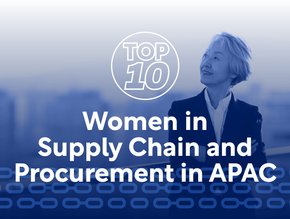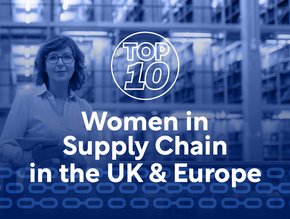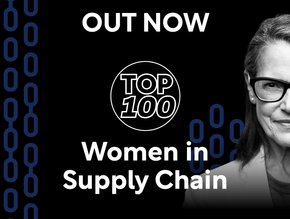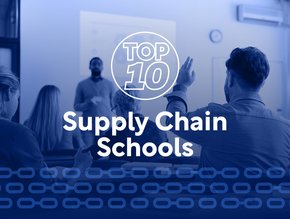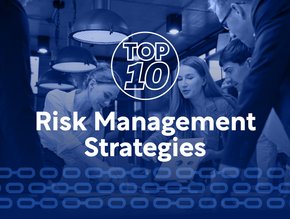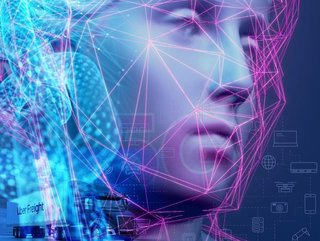
Pre-pandemic, technology was already beginning to reshape supply chains, but it was a slow and gradual process. Back then, global production and supply networks were designed to optimise costs and efficiency.
However, weaknesses in this supply model were horribly exposed by Covid, the Suez blockage and, subsequently, a seemingly never-ending series of supply chain shocks, not least that caused by Russia's invasion of Ukraine.
This has left C-suiters the world over in little doubt that their supply chains need reimagining. Today's world demands that supply is built on connected networks rather than unwieldy chains than span the globe and are vulnerable to everything from political unrest and extreme weather events, to labour disputes and – in the case of China – continuing Covid disruption.
Technology is key to helping businesses reshape supply chain, and here are 10 of the most important forms of it.
Supply chain tech: 3D Printing
Additive manufacturing – better known as 3D printing – has come a long way since the early 1980, when it produced only plastic prototypes. Now, it can produce a wide range of finished goods from materials including metal, concrete, plastics, resins and even food.
Businesses looking to shorten supply chains and minimise risk see 3D printing as a way of increasing speed to market and reducing global impact by limiting the shipping of goods around the globe. 3D PRINTING 3D printing technology allows organisations to create prototypes and products on demand, reducing lead times and costs
Top companies: GE, Renishaw, Xerox, Stratasys, 3D Systems, Proto Labs, Materialise, Desktop Metal
Supply chain tech: 5G
5G technology provides faster, more reliable connectivity, enabling organisations to improve communication and collaboration across the supply chain
The use of 5G in supply chain operations helps provide visibility. Today, smart sensors can be used to collect and analyse supply chain data in near real time.
First, products with 5G-enabled IoT sensors are placed on a truck, say, at the factory. Because of 5G’s potential to support mobile devices at scale, it’s then possible to track a company’s entire supply chain with greater accuracy.
En route, a manager could even check in and see the exact location of the products and the temperature or other environmental causes of a delay that arise in near real time.
Top companies: Intel, Nokia, Cisco, Qualcomm, Samsung, Apple, Ericsson
Supply chain tech: Augmented/virtual reality
VR and AR technology helps organisations visualise and simulate supply chain operations, improving decision-making and reducing errors
AR can create virtual stockrooms for organisations by projecting holographic products onto shelves. Employees can check specifications like colour and size without accessing a physical product, and make an informed decision when placing an order, so saving organisations store room space and money on unwanted products.
Top companies: ScienceSoft, ScaleXM, PTC, Lucid Reality Labs, Groove Jones, Spatial
Supply chain tech: Autonomous vehicles
Autonomous vehicles, such as drones and self-driving trucks, can reduce costs and improve delivery times by reducing human error and optimising routes Top companies: TuSimple, Embark Trucks, Starsky Robotics, Uber Freight, Volvo Autonomous Solutions, Waymo Uber Freight recently deployed Volvo’s autonomous transport solution on selected routes, starting in Texas. The solution is also designed to ease strained global supply chains and is a sign of things to come. Through the integration of vehicle-tovehicle comms and radar-based collision avoidance systems fleets of trucks will soon be commonly driven in ‘platoons’, using aerodynamics to save fuel. Platoons are managed by cloud-based network that connect trucks through mobile comms and Wi-Fi. Cloud-based supervision limits platoons to specified roads in safe driving conditions.
Supply chain tech: Big data
Big data is high-volume and/or high-variety information that enables enhanced insight, decision making and process automation. Data analytics is the science of analysing raw data in order to make conclusions about that information. Many of the techniques and processes of data analytics have been automated into mechanical processes and algorithms that work over raw data for human consumption. Until relatively recently, the lack of capabilities around manageable data hindered better informed value-based decision making and proactive risk management efforts. But Organisations today have a host of new technologies to help with procurement, supply chain risk management, and S&OP.
Supply chain tech: Data & analytics
Advanced analytics helps to provide insights into supply chain operations, enabling organisations to identify inefficiencies and make improvements.
Top companies: IBM, Accenture, Oracle, SAP, Teradata, Capgemini, Microsoft, Tableau, Kinaxis, Logility, Coupa
Supply chain tech: Robotics Process Automation
RPA can automate manual and repetitive tasks, freeing up employees to focus on more strategic tasks. Robotics is revolutionising the supply chain and delivering huge value.
It improves speed and accuracy of operations, particularly in warehousing and manufacturing. Robots also increase worker productivity, reduce error rate, cut pick-, sort-, and storing-times, and increase access to difficult or dangerous locations. And with the current labour problems robots are shaping up as the last-mile workers of the future.
Top companies: UiPath, Automation Anywhere, IBM RPA, Blue Prism, Microsoft
Supply chain tech: Internet of Things
IoT comprises billions of sensors that are embedded in various devices, both within the supply chain but also the wider world, like fridges and cars.
IoT allows for data-exchange – both within and between systems – over the Internet, and can leverage actionable data from every step of the supply chain. It’s now used for locating materials, servicing equipment and monitoring productivity and efficiency.
In 2013, there were 20 million smart sensors in use in supply chains, feeding live data back to those controlling supply levers. In 2022, that number hit 1 trillion. By 2030, Deloitte predicts up to 10 trillion sensors will be deployed. IoT IoT technology helps to track and monitor products in real-time, enabling organisations to make informed decisions about their supply chain.
Top companies: iTechArt, Siemens, Vates, Samsara, IBM, PTC, GE Digital, Cisco, Telit
Supply chain tech: Cloud computing
Cloud computing technology allows supply chain organisations to store and process large amounts of data, making it accessible from anywhere at any time.
Often people interchange the term 'cloud computing' with SaaS (software-as-a-service). But although closely related, these terms mean different things. Cloud computing (usually referred to simply as 'the cloud') is a broad term that encompasses various models used to deliver computing services through the Internet as a utility, pay-as-you-go model.
SaaS is the best-known model in the cloud, the others being platform-as-a-service (PaaS) and infrastructure-as-a-service (IaaS). The true power of cloud computing lies in the way it changes the economics of computing.
Top companies: AWS, Google Cloud, Microsoft Azure, IBM Cloud, SAP, Oracle, Alibaba, VMWare, Salesforce, ServiceNow
Supply chain tech: Blockchain
Blockchain is significantly changing how retailers and consumer-packaged-goods manufacturers run their supply chains. The need for secure transactions and the demand for ESG and sustainability transparency are driving how buyers relate to brands. Blockchain is meeting these needs by guaranteeing the provenance of goods, as well as the security of supply chain transactions.
Blockchain can significantly improve supply chain, which often lacks traceability and transparency. It provides a decentralised and secure database that records every transaction along the supply chain. Picture real-time tracking and traceability of products, with regularised updates on each stated leg of a journey.
The technology provides secure and transparent tracking of goods and products, reducing the risk of fraud and errors
Top companies: Ethereum, IBM Blockchain, Cardano, Ripple, Avalanche, Chainalysis, Hyberledger Fabrik, Hyperledger Sawtooth, R3 Corda, Stella
Supply chain tech: AI & ML
Artificial Intelligence and Machine Learning can help in automating processes, reducing costs, and improving operational efficiencies. According to a recent IBM Cognitive Computing Study, 92% of outperforming manufacturing executives say AI and cognitive computing will enhance performance.
Advances in AI will tie everything together, including supply chain management, enterprise resource planning systems, smart factories, and autonomous warehouses.
Supply chain leaders and their teams are making complex decisions on-the-fly based on data-driven AI and ML solutions. Artificial intelligence is 'umbrella concept.
AI makes basic inferences, and can store data, and learn from it. ML is a subset of AI – an application of it that typically sees unsupervised machines learning from data without human supervisors watching their every move.
Warehouses, for example, but also nonstrategic and time-consuming processes, such as invoice processing and standard contract renewals in procurement. AI touches every field of supply chain management: procurement, manufacturing, fulfilment, logistics, inventory, and ESG compliance.
Top companies: Uptake, Symbiotic, DataArt, C3.ai, H2O.ai, Coupa, Alloy.ai, Infor, Havi
- The Categories – Part 2: Procurement & Supply Chain AwardsDigital Supply Chain
- Coface Provides Visibility and Suppliers' Financial HealthTechnology
- Asma Al-Mulla, Procurement Director joins P&SC LIVE DubaiDigital Supply Chain
- T2 on Supplying Quality tea, Whatever the ChallengesSupply Chain Risk Management

